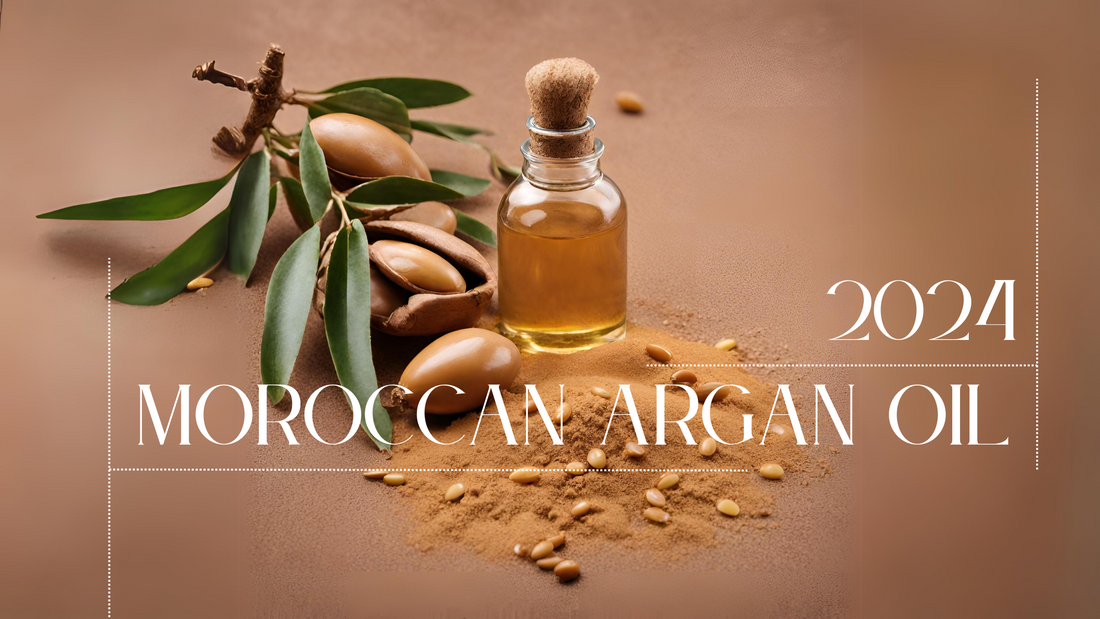Introduction
In recent years, argan oil has gained immense popularity in the beauty industry for its purported benefits for skin and hair. However, for those with oily skin, the question remains: is argan oil truly beneficial or could it exacerbate oiliness? Let's delve into this topic to uncover the truth behind the hype surrounding argan oil and its suitability for oily skin types.
Understanding Argan Oil
Argan oil, often referred to as "liquid gold," is derived from the kernels of the argan tree native to Morocco. Renowned for its moisturizing and nourishing properties, this versatile oil is rich in essential fatty acids, antioxidants, and vitamin E, making it a sought-after ingredient in skincare products.
==> Discover Our Argan Exclusive Collection
Exploring the Benefits for Oily Skin
Reducing Sebum Production
Argan oil possesses unique properties that may help regulate sebum production in oily skin. Despite its moisturizing properties, argan oil is non-comedogenic, meaning it won't clog pores or contribute to further oiliness. By balancing oil levels, argan oil can potentially minimize the appearance of shine without stripping the skin of its natural oils.
Lightweight Hydration
Unlike heavy oils that can feel greasy on the skin, argan oil is lightweight and easily absorbed, making it suitable for oily skin. Its moisturizing properties help to hydrate the skin without leaving behind a greasy residue, providing a mattifying effect that can benefit those with oily or combination skin types.
Anti-Inflammatory Properties
Argan oil contains compounds with anti-inflammatory properties, such as tocopherols and polyphenols, which can help soothe and calm irritated skin. For individuals with oily skin prone to breakouts, incorporating argan oil into their skincare routine may help reduce redness and inflammation associated with acne.
Enhancing Skin Barrier Function
Maintaining a healthy skin barrier is essential for all skin types, including oily skin. Argan oil's high concentration of fatty acids helps strengthen the skin barrier, protecting it from environmental stressors and preventing moisture loss. By fortifying the skin's natural defenses, argan oil promotes overall skin health and resilience.
Addressing Concerns and Misconceptions
Despite its potential benefits, some individuals with oily skin may hesitate to use argan oil due to misconceptions about its suitability. Let's debunk some common myths:
Myth 1: Argan Oil Will Make Oily Skin Greasier
Contrary to popular belief, argan oil is unlikely to exacerbate oiliness when used in moderation. Its lightweight texture and sebum-regulating properties make it a suitable option for oily skin, provided it is applied sparingly.
Myth 2: Oily Skin Doesn't Need Moisturization
While it's true that oily skin produces more sebum than other skin types, it still requires hydration to maintain a healthy balance. Skipping moisturizer can actually signal the skin to produce more oil, leading to increased oiliness and potential breakouts. Argan oil provides lightweight hydration without clogging pores, making it an ideal choice for oily skin.
Myth 3: All Oils Are Bad for Oily Skin
Not all oils are created equal, and some, like argan oil, can actually benefit oily skin. The key lies in choosing non-comedogenic oils that won't clog pores or contribute to breakouts. Argan oil's unique composition makes it suitable for oily and acne-prone skin, offering nourishment without the greasy feel.
FAQs about Argan Oil for Oily Skin
Q: Can argan oil cause breakouts on oily skin?
A: When used in moderation, argan oil is unlikely to cause breakouts on oily skin due to its non-comedogenic nature.
Q: How should argan oil be incorporated into an oily skin routine?
A: Argan oil can be used sparingly as a moisturizer or added to skincare products such as serums or masks for added hydration.
Q: Is argan oil suitable for sensitive oily skin?
A: Yes, argan oil is gentle enough for sensitive skin and can help soothe inflammation and redness.
Q: Can argan oil be used to treat acne scars on oily skin?
A: While argan oil may help improve the appearance of acne scars over time, it's essential to consult with a dermatologist for personalized treatment recommendations.
Q: How long does it take to see results from using argan oil on oily skin?
A: Results may vary depending on individual skin concerns, but consistent use of argan oil can lead to visible improvements in skin texture and hydration over time.
Q: Are there any side effects of using argan oil on oily skin?
A: In rare cases, argan oil may cause allergic reactions or irritation. It's recommended to perform a patch test before using any new skincare product.
Conclusion
In conclusion, argan oil can be a valuable addition to the skincare routine of individuals with oily skin. Its unique blend of moisturizing and anti-inflammatory properties makes it well-suited for addressing common concerns such as excess oiliness and acne. By understanding how to incorporate argan oil effectively, oily skin types can harness its benefits for healthier, more balanced skin.

